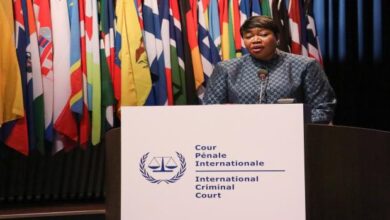What it means to end Israeli-Palestinian agreements: legal and political consequences

What it means to end Israeli-Palestinian agreements: legal and political consequences[1]
Ihsan Adel and Bashar Sallout
The leader of the Palestinian Authority (PA) and the chairman of the Palestine Liberation Organization (PLO), Mahmoud Abbas, declared on 19 May 2020 that the PLO and the State of Palestine are no longer bound by any and all “agreements and understandings with the American and Israeli governments” and “all the obligations based on these understandings and agreements, including the security ones.”
President Abbas also stated that the “Israeli occupation authority, as of today, has to shoulder all responsibilities and obligations in front of the international community as an occupying power over the territory of the occupied state of Palestine.” The declaration came in response to an announcement by Israeli Prime Minister Benjamin Netanyahu that Israel has started mapping areas of the West Bank to be annexed in accordance with the peace plan ‒ also known as the Deal of the Century ‒ proposed by US President Donald Trump.
A week later, on May 26, the ICC Pre-Trial Chamber asked the State of Palestine to offer clarifications and additional information in regards to the meaning of this decision and its consequences in regards to the Oslo Accords between Israel and the Palestinian Authority. The reason for this request is that the decision may have an impact on the tribunal’s assessment of its jurisdiction in relation to the occupied Palestinian territories (oPts). The State of Palestine responded on June 4 by stating that “if Israel proceeds with annexation, a material breach of the agreements between the two sides, then it will have annulled any remnants of the Oslo Accords and all other agreements concluded between them.”
This paper discusses the legal aspect of ending the Palestinian-Israeli agreements in the light of international law, including the legal status of the Palestinian territories following the PA decision. The paper also looks at the implications for the Palestinian Authority and the Basic Law, and addresses the aspects of the Palestine situation before the ICC, and the potential future scenarios following the Palestinian declaration.
Background on the Palestinian-Israeli agreements
Three formal agreements and two memorandums signed between the PLO and Israel have historically governed the relationship between the two sides. These are as follows:
- Oslo I Accord (1993), which is the first Palestinian-Israeli agreement that came in light of the PLO’s recognition of Israel’s right to exist, and Israel’s recognition of the PLO as a representative body of the Palestinian people. Based on the agreement, the PA was formed as an interim government “for a transitional period not exceeding five years, leading to a permanent settlement based on Security Council resolutions 242 (1967) and 338 (1973).”
- The Gaza-Jericho Agreement (1994), which included the first step towards the withdrawal of Israel from Gaza and Jericho, gave the PA the authority to issue legislation and laws. Meanwhile, Israel would continue to assume responsibility for defense against external threats and for preserving settlement security. The agreement was supplemented by the Protocol on Economic Relations, also called the Paris Protocol, which regulates the economic relationship between the two sides.
- Oslo II Accord (1995), sometimes called the Taba Agreement, sets the stage for Israel’s withdrawal from six major Palestinian cities. It was also agreed under the Agreement to elect 82 members of the Palestinian Legislative Council, and to release detainees in Israeli prisons.
- The Wye River Memorandum (1998) and the Sharm el Sheikh Memorandum (1999), stipulate that Israel gradually transfers the authority of 13% of West Bank areas to the PA in exchange for the latter intensifying its campaign against violence. It also called for continued security cooperation between the two parties.
Legal aspects of ending the Palestinian-Israeli agreements in light of international law
The Oslo Accords and the subsequent agreements were signed between two parties: the PLO as a representative of the Palestinian people, and Israel as a state. Until 2014, the Vienna Convention on the Law of Treaties (VCLT), famously called the ‘treaty on treaties’, did not apply in regards to the Palestinian-Israeli agreements. Article 3 of the Vienna Convention states that “international agreements concluded between States and other subjects of international law” are not subject to the Vienna Convention because it exclusively regulates the relationship between states. It can be argued that the PLO that time “represents a state called Palestine, making an agreement concluded by the PLO with a state, such as Israel, an agreement between two states”.[2]
In any case, having Palestine become a non-member observer state of the United Nations in 2012, the State was able to join the Vienna Convention on the Law of Treaties in April 2014. Under Article 16 of the Vienna Convention on Succession of States in respect of Treaties, newly independent states are not obligated to maintain any treaty that was in force prior to it achieving statehood. However, it can still be argued that Palestine, as a state, is bound by the agreements that the PLO has signed as its predecessor. Moreover, the government of the State of Palestine and the Palestinian president have repeatedly declared their commitment to these agreements. In addition, the PLO remains, even after recognising Palestine as a non-member state of the United Nations, the official representative of the Palestinians – whether those living inside or outside the state of Palestine as refugees across the world.
Thus, the rules of the Vienna Convention -and its customary rules in particular – can be invoked to determine whether the state of Palestine is able, according to those rules, to withdraw from agreements with Israel, and whether its decision is in violation of the agreements themselves or rules of international law.
- Terminating the agreement under its provisions – Article 54 of the VCLT: the Oslo Accords and its aftermath did not stipulate a specific period for its termination, but all of them either stipulated or came in the context of organising the interim period, which does not exceed five years according to the Oslo Accords. It is a period that has already ended since the year 1998.
- Terminating the agreement as a result of its breach – Article 60 of the VCLT: the Oslo Agreement was essentially violated dozens of times, including when Israel reoccupied West Bank cities in 2002 as part of Operation Defensive Shield.[3] Other breaches include the building of settlements in the occupied territories, which the ICC has begun to investigate, and the supposed Israel’s Jordan Valley annexation decision, all of which constitute fundamental violations of the agreement.
- Terminating the agreement as a result of its conflicting with a peremptory norm of international law (jus cogens) – Article 53 of the VCLT: The Oslo Accords contravene a number of peremptory norms in international law, as it essentially gives up a number of rights granted to Palestinians under international law, especially the Geneva Conventions of 1949. These include the acceptance to negotiate on the issue of settlements, which is one of the issues that cannot be negotiated because it represents a violation of international humanitarian law, and even a war crime, according to article 8(2)(b)(viii) of the Rome Statute of the ICC. In addition, the Oslo Accords have limited the PA’s authority over fundamental matters such as foreign relations and even the enactment of internal laws,[4] all of which are contrary to the rules of international law.
The legal status of the Palestinian territories and the Palestinian Authority after the termination of agreements
The PA derives its legal legitimacy from three basic elements: the PLO, the Oslo Accords, and elections. The declaration by the PLO’s Central Council (PCC) and National Council (PNC) of the termination of the Oslo Accords is expected to result in a change in the legal status of the Palestinian Authority. Its powers, institutions and the laws governing its operation would be ended accordingly. The Palestinian Basic Law (or Constitution) is also expected to be amended to conform to the new situation, or replaced by a new constitution. Article 115 of the Palestinian Basic Law stipulates that the “provisions of this Basic Law shall apply during the interim period and may be extended until the entry into force of the new Constitution of the State of Palestine” (emphasis added). In its Introduction, the Palestinian Basic Law also affirms its nature being placed “within the framework of the interim period, resulting in the Declaration of Principles [Oslo Accords].” Therefore, once these Accords are ended, the transitional period in which they were meant to serve ends as well.
Meanwhile, the Palestinian statehood, which was affirmed when Palestine was accorded a non-member observer State status in the United Nations in 2012, is fixed. Its status is not derived from the Oslo Accords or other agreements, but rather from the presence of the elements of statehood in Palestine: territory, population, and government that has foreign relations and enjoys wide international recognition. Palestine – as a state, not the Palestinian Authority, has ratified 87 international agreements from 2012 to mid-2018,[5] and joined 21 international organisations.[6]
Hence, once it has terminated the Oslo Accords with Israel, Palestine remains a state under occupation. Its relationship with Israel is regulated by the Geneva Conventions, to which both Israel and Palestine have acceded. Article 2 common to the four Geneva Conventions of 1949 stipulates that these agreements apply to any land under occupation. The International Court of Justice in its advisory opinion on the separation wall in 2004 relied on this article to reaffirm’s Israel’s obligation to abide by the Geneva Convention (IV), considering that the Palestinian territories are under occupation. Article 47 of the Geneva Convention (IV) also states: “Protected persons who are in occupied territory shall not be deprived, in any case or in any manner whatsoever, of the benefits of the present Convention by any change introduced, as the result of the occupation of a territory, into the institutions or government of the said territory, nor by any agreement concluded between the authorities of the occupied territories and the Occupying Power, nor by any annexation by the latter of the whole or part of the occupied territory.”
It should be clear in this context that terminating the Oslo Accords does not change the character of the PLO as the representative body of the Palestinian people, as stipulated under UN Resolution No. 67/19 regarding the upgrading of its status in the UN. Therefore, the PLO can administer the government of Palestine until new elections are held, or it can also keep the body of the Palestinian Authority as an executive instrument or body in the hands of the PLO’s PNC, according to Article (7) of Chapter II of the PLO’s Basic Law, which states that “the National Council is the supreme authority of the liberation Organization. It drafts the policy, plans and programmes of the Organization.”
Terminating the agreements: implications for the Palestinian situation at the International Criminal Court (ICC)
After formally acceding to the Rome Statute of the International Criminal Court in 2014, the State of Palestine referred[7] on May 22, 2018 the situation in Palestine to the Prosecutor, requesting her[8] to investigate the situation in the occupied territories. The ICC Prosecutor has begun a preliminary examination of the crimes committed in the Palestinian territories, and decided to proceed with the opening of a formal investigation into crimes believed to be committed in Palestine, provided that the scope of what could be “occupied Palestinian territories” is defined by the court’s Pre-Trial Chamber.[9]
Controversy has arisen over the impact of the withdrawal from the Palestinian-Israeli agreements on the jurisdiction of the court with regard to the Palestinian territories. It comes in light of allegations claiming the Oslo Accords affirm that the PA does not represent a state, and therefore cannot be a member of the statute of the International Criminal Court. Such allegations also arose following the request of the Pre-Trial Chamber from both Palestine and Israel to provide commentary to the ICC in this regard.
In this assessment, it is believed that the withdrawal from the Oslo Accords and the subsequent agreements, reaffirms the jurisdiction of the International Criminal Court for a number of reasons, the most important of which are:
- Palestine is a state; its adherence to the Rome Statute and its membership in the International Criminal Court were based on it being recognised as a non-member state in the United Nations. It was not based on the Oslo Accords or any of its subsequent agreements.
- The Oslo Accords restricted the PA’s jurisdiction to try Israelis, including settlers. Once it withdraws from the agreements, Palestine will have the natural right to prosecute any crimes that occur on its territory. This is one of the essential attributes of state sovereignty, even if the state in question is under occupation. This point should be clear from articles 54 and 64-66 of the Geneva Convention (IV).
- With regards to previous years, that is, before the PA’s withdrawal from the agreements, it should be noted that many of the crimes committed by Israel are continuing crimes, such as settlements. This means that such crimes can be subject to the jurisdiction of the court on the basis that they still exist even after Palestine terminates the relevant agreements.
The position of the Prosecutor of the International Criminal Court reaffirmed that the Oslo Accords and their subsequent agreements do not affect the Court’s exercise of its jurisdiction, whether before or after Palestine ends the agreements. This is based on the following:
- Once the state becomes a party to the statute, the ICC automatically has the right to exercise jurisdiction over the crimes occurring in its territory, without any further evaluation.
- There is nothing in the Oslo Accords that prevents Palestine from accepting the ICC’s jurisdiction, or the exercise of this jurisdiction by the C The Palestinian and Israeli sides viewed the West Bank and Gaza Strip as one regional unit.
- Given the fact that the Occupied Palestinian territories must have sovereignty. This sovereignty “resides in the Palestinian people under occupation.” Israel, as an occupying power, cannot claim sovereignty over the Palestinian territories. The transfer or delegation of jurisdiction from Palestine to Israel does not replace the inherent jurisdiction of Palestine, nor does it prevent the exercise of the jurisdiction of the court.
- Article 12(2)(a) of the Rome Statute “authorizes the Court to exercise jurisdiction over ‘the territory’ of a State and not over ‘the territory over which their court’s exercise criminal law jurisdiction’”[10]
What’s next? Possible scenarios
As is clear from Palestine’s response to the ICC, the Palestinian President’s declaration for ending the Oslo Accords with Israel hinges on the latter’s annexation of West Bank areas. Given the lack of clarity regarding the next steps following the Palestinian declaration on May 19, one can hypothesis three possible scenarios:
- The first scenario: The first scenario suggests that this announcement will not be followed by actual steps. Rather, President Abbas is using the declaration as a means of pressuring Israel and hoping it won’t go ahead with its plan to annex West Bank areas and calling on the international community to take a stance and initiate an international peace conference.
What makes this scenario more likely is the Palestinian leaderships’ past claims to end agreements with Israel. Moreover, no effective measures were taken on the ground to declare a change to the status quo. There is also the fact that Israel controls most of what lies under the PA’s jurisdiction. It controls movement of people and goods and the PA’s budget, 65% of which comes from Israel through clearing funds. The security cooperation cannot be dissolved overnight. Its effects, according to the International Crisis Group, are not limited to freedom of movement, but include everything, even sources of food. Ending the agreements would first make Israel fully responsible for the aforementioned obligations and lead to direct clashes between Israel and the Palestinians, including the PA’s leadership. This requires drawing a new struggle path, based on restoring Palestinian unity and formulating comprehensive strategies for Palestinians.
- The second scenario: This scenario assumes moving forward with the decision, and announcing the official termination of the agreements. This may take one of two forms:
- The dissolution of the PA while keeping its institutions as a government for the State of Palestine.
This means no longer abiding by the Oslo Accords, disengaging the PA from the obligations under the Accords, and keeping the institution as an official Palestinian state body and as a government emanating from the PLO, and not the Oslo Accords. In this sense, the PA can serve as a tool for implementing a program based on national consensus to end the occupation, and to hold Israel responsible for its obligations as an occupying power. Under the Oslo Accords, the PA used to take many of the responsibilities that were originally -based on the rules of international law- those of the occupying power, such as providing education, healthcare, and security for the population under occupation. Following the termination of the Oslo Accords, occupied Palestine can now demand that Israel assume its responsibility towards the Palestinians under its occupation.
- The complete dissolution of the PA
This means the dissolution of the PA with all its affiliated bodies. What this means is that we will go back to the pre-Oslo situation, which will often lead to chaos and lack of security, prompting Israel to re-impose its military and civil control over the West Bank. That is the system for which Israel has paved the way during the past period by establishing mechanisms for direct communication between Palestinians and Israeli Civil Administration officials.
Conclusion
It is still too early to say how serious the PA is in regards to terminating the Oslo Accords and their subsequent agreements, but there is no doubt that this step has become a popular and factional demand that resonates widely. This is the position of many Palestinian factions with the goal of holding Israel fully responsible as an occupying power. However, this is legally, political and realistically far too complicated, which leaves the question open about the absence of a single Palestinian national project within the framework of an elected body that represents the entire Palestinian people. This is the most pressing question for the time being.
[1] * This paper is a summary of a study published in Arabic, The Vision Center for Political Development, 5/6/2020. https://cutt.us/jIk1E
[2] J Quigley, The Israel-PLO Interim Agreements: Are They Treaties. Vol 30/3 Cornell International Law Journal (1997) 722.
[3] Ihsan Adel, “Palestine as a Non-Member Observer State in U.N; Legal and Political Dimensions” (2014), 31. Available in Arabic.
[4] Ibid. 24-27.
[5] International Agreements to which the State of Palestine acceded, Palestinian Ministry of Foreign Affairs, June 2019, https://cutt.us/rPfd1. Available in Arabic.
[6] Membership of the State of Palestine in International Organizations, Palestinian Ministry of Foreign Affairs, June 2019, https://cutt.us/e2RyW. Available in Arabic.
[7] The Palestinian referral was based on articles 13 (a) and 14 of the Rome Statute.
[8] Referral by the State of Palestine Pursuant to Articles l3 (a) and 14 of the Rome Statute, ICC. 15 May 2018.
https://www.icc-cpi.int/palestine
[9] Crimes committed in the occupied Palestinian territory, including East Jerusalem, since 13 June 2014. https://www.icc-cpi.int/palestine
[10] Schabas, William. Situation in the State of Palestine. ICC-01/18. 15 March 2020. See: https://legal-tools.org/doc/u9y4lh/pdf/




